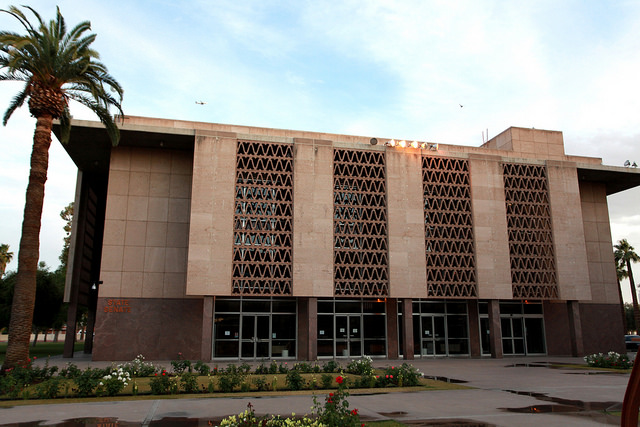Senate Bill 1312 was introduced by Arizona State Senator Sonny Borrelli to allow for the legalization of gambling in bars and clubs. The legislation was instantly opposed by Indian tribes in the state as they said the activities would be in violation of their tribal/state gaming compact. After introducing the measure, Borrelli made a few changes and limited the bill to allow only electronic keno games instead of bingo. The Senator is calling keno a lottery-style game which the state is already allowed to provide without conflicting with the tribal gaming compact.
The revised version of the bill will see the creation of a State Electronic Keno Commission which would regulate as well as oversee the keno games as they take place statewide. Revenues would be divided within the state general fund, full-day kindergarten, and public safety. The commission would also be in charge of determining where the game could be played as well as how it would be played.
According to Borrelli, keno could be offered in locations that already provide lottery games. These venue types would include fraternal clubs, gas stations, and bars. The bill has support from the community, including the American Legion. According to a report by AZCentral.com, the American Legion of the state already participates in the lottery and pull tab games and would be in support of keno gaming. Angel Juarez of the American Legion said that the proposal would allow the group to create a new revenue source that would help with the loss felt when conventional bingo moved to the state casinos.
While there are proponents for the new gaming measure, there are also those who are opposed. American Indian tribes that have gaming compacts with the state, signed in 2002, believe that the proposal is in violation of their compacts. In the compacts, it states that if the state were to allow non-tribal entities to offer casino-style gaming, then they do not have to comply with the limits placed on their gaming venues, gaming machines or card tables. Another stipulation in the contract says that tribes do not have to give the revenue amounts they were previously paying the state.
This issue is known as a ‘poison pill’ and according to a Navajo Nation representative, Mike Bielecki, the ‘poison pill’ will be triggered once the state allows a non-tribal entity to offer a new game that was not grandfathered in under the tribal compact. Bielecki feels that keno falls into this category.
Borrelli made the changes to the bill, removing bingo, as he felt that keno is under the jurisdiction of the state and not within the tribes. According to the Senator, the state has reserved the rights to certain games such as the lottery and keno. If the bill were to be approved, the revenues created could be used to fund several programs, including the full-day kindergarten program which has an estimated funding cost of $240 million.
The bill moved through the Senate Judiciary Committee late last week with a vote of 4 to 3. The bill will be heard again this week by the Senate Appropriations Committee.



